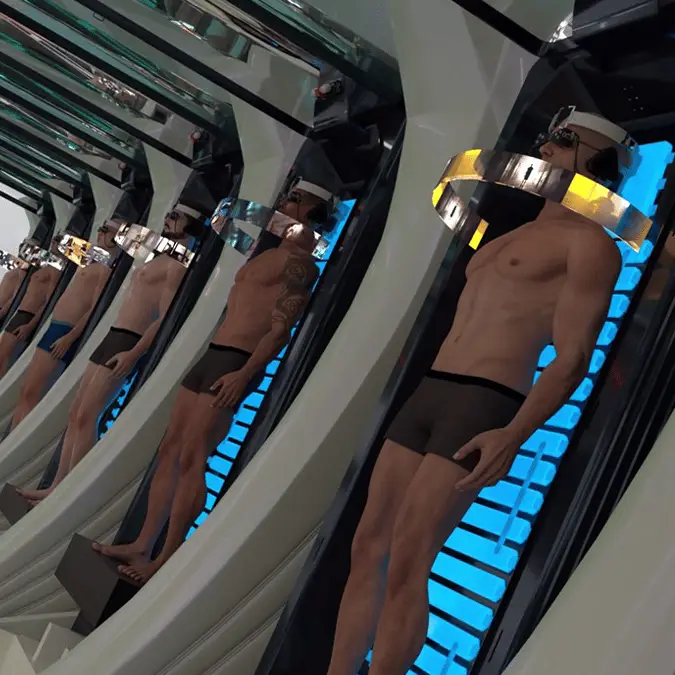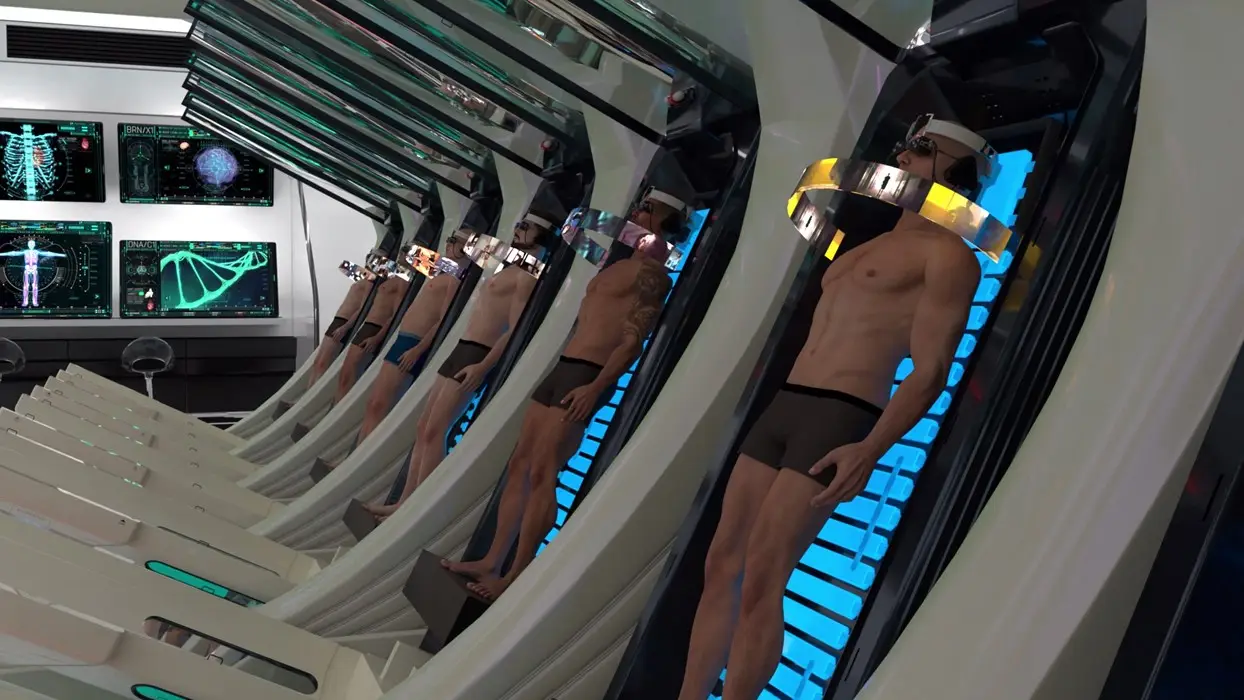
There could soon be a future where criminals serve their time inside an AI prison and have 'artificial memories' implanted into their brains.
The future is looking hella crazy. A dystopian virtual imprisonment system called Cognify places offenders in high-tech pods where they're fitted with headsets and fed a stream of AI content. The idea is that prisoners would 'live' through artificial memories designed to reform their behaviour.
Violent offenders, for example, could be forced to experience their crime from the victim’s perspective.
Whereas drug-related criminals might be subjected to memories that 'simulate the struggles of addiction and recovery.'
Advert
AI would also manipulate neurotransmitters and hormones in real time to trigger emotional responses like guilt, remorse and empathy.
In the future, it seems prisoners could choose Cognify as an alternative to a traditional prison sentence, knowing that a few minutes inside this AI-generated hellscape could replace years in a real one.

The idea behind Cognify came from Hashem Al-Ghaili, a Berlin-based filmmaker and science communicator, who sees it as a way to overhaul the criminal justice system.
He argued that the 'limitations of the current criminal justice system', like overcrowding and ineffective rehabilitation, prove that the current system isn’t working.
With Cognify, prisoners wouldn’t just sit in a cell, they'd experience a 'more effective path to reformation and societal reintegration.'
As futuristic as it sounds, the technology behind the thought prison is backed by real science.
Scientists have already successfully implanted false memories in mice and even transformed their fearful memories into positive ones.
In 2018, researchers transferred a memory from one marine snail to another, proving that memories can be artificially induced.
Plus, with AI tools like OpenAI’s text-to-video model called Sora, creating specific, hyper-realistic simulations is becoming increasingly plausible.
So, how does this mind-altering punishment work exactly?

Well, to start, a high-resolution scan maps the prisoner’s brain, identifying areas for Cognify to 'inject' artificial memories.
The headset then feeds tailored memories into the prisoner’s mind, creating realistic experiences of anything from regret to personal growth.
Meanwhile, the prisoner’s brain data would be sent to a 'central computer for scientific research,' to reportedly help 'understand the criminal mind' and 'determine the best approach' to tackle future crimes.
But naturally, revolutionary tech like this comes with an abundance of ethical questions. Can someone truly consent to having artificial memories implanted? How do you ensure it doesn't cause lifelong trauma?
“There are concerns about consent, privacy, and the potential for unintended psychological consequences from altering memories, even if they are artificial,” Al-Ghaili admitted. “Implanting artificial memories also raises questions about the authenticity of self.”
Also, if a person walks out of Cognify minutes later with years of false memories, how do they adjust back to reality?
A Cognify press release suggests that “family members of the subject could be provided with a comprehensive report on the new artificial memories,' but the psychological disconnect would be substantial.
Even if the technology worked 'error-free,' it would still require years of extensive testing to ensure it doesn’t cause irreparable harm.